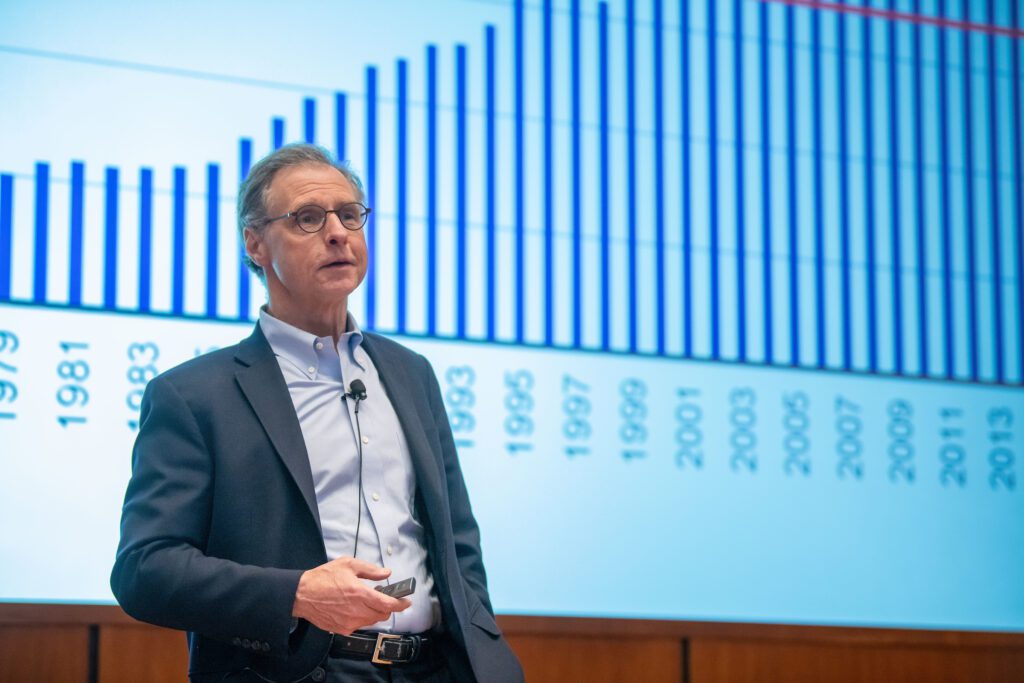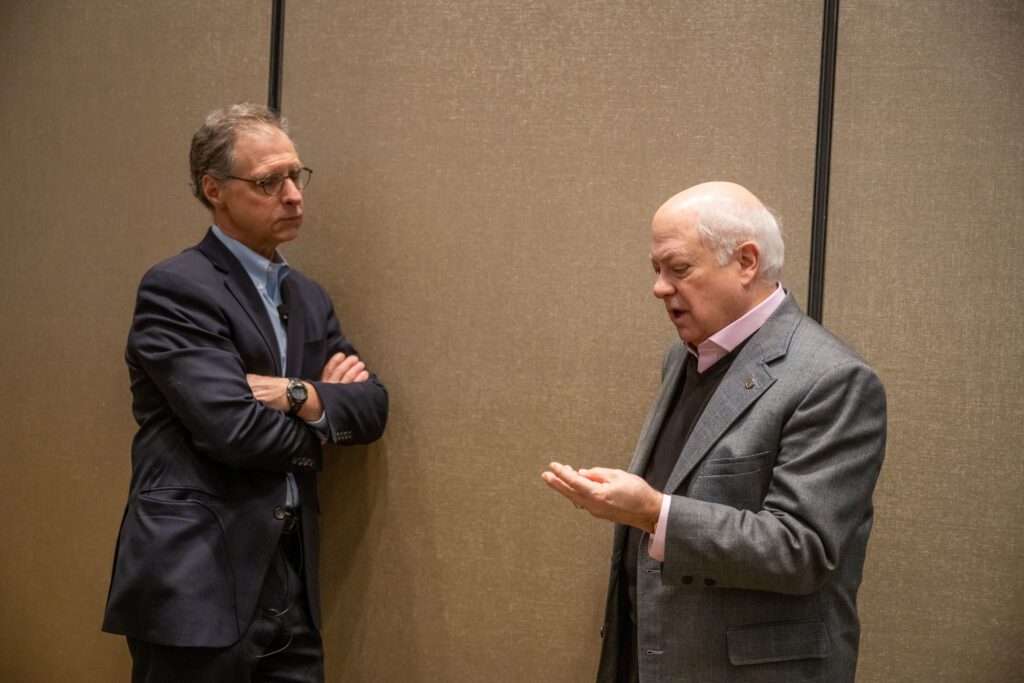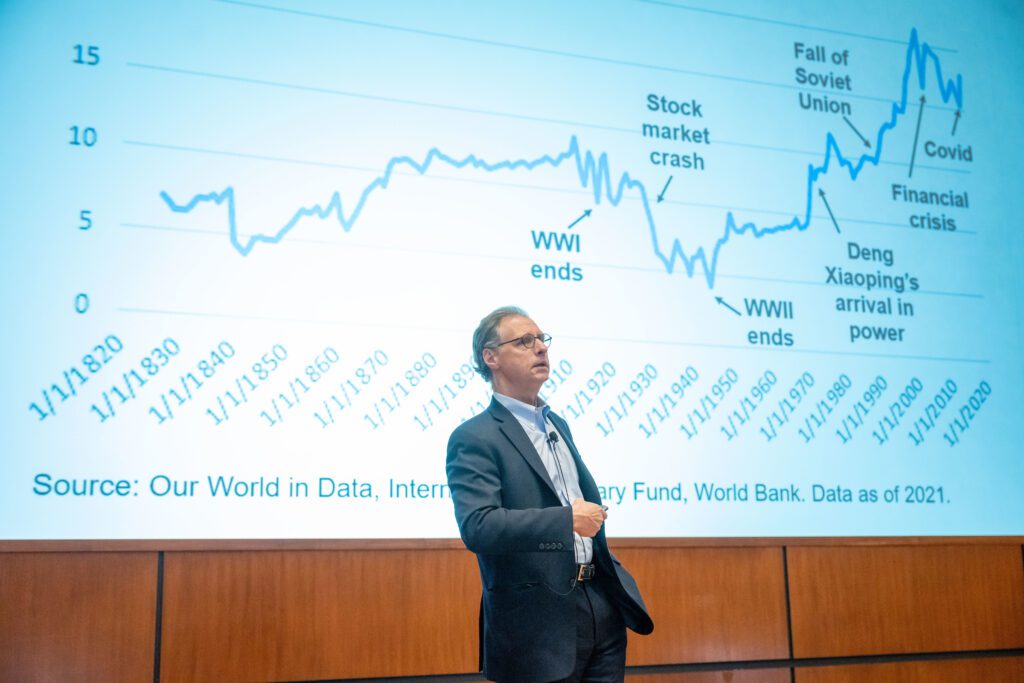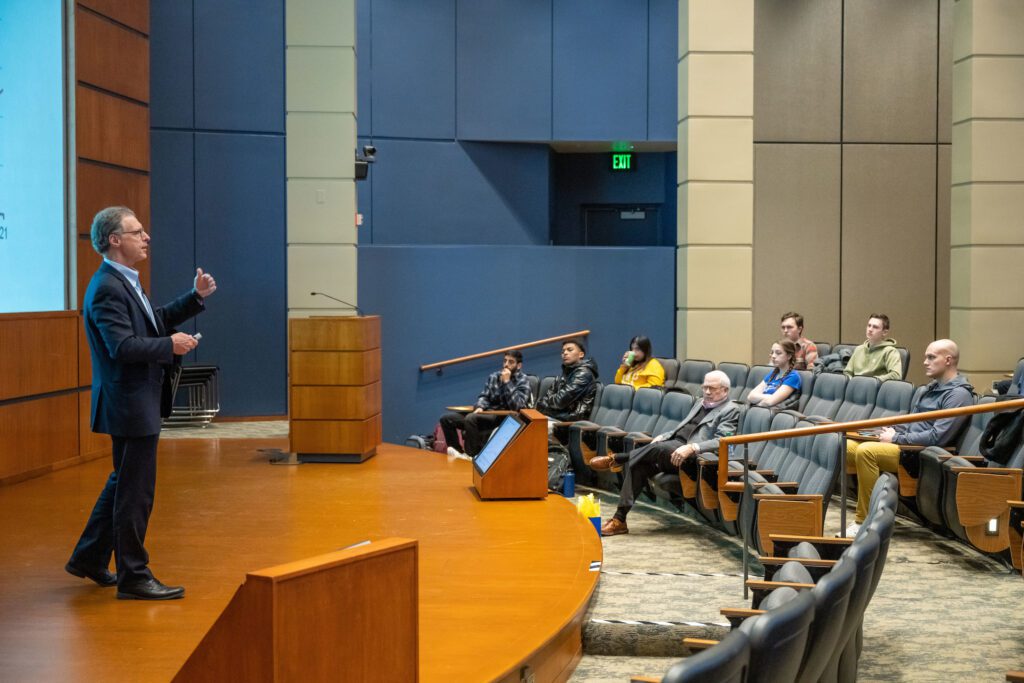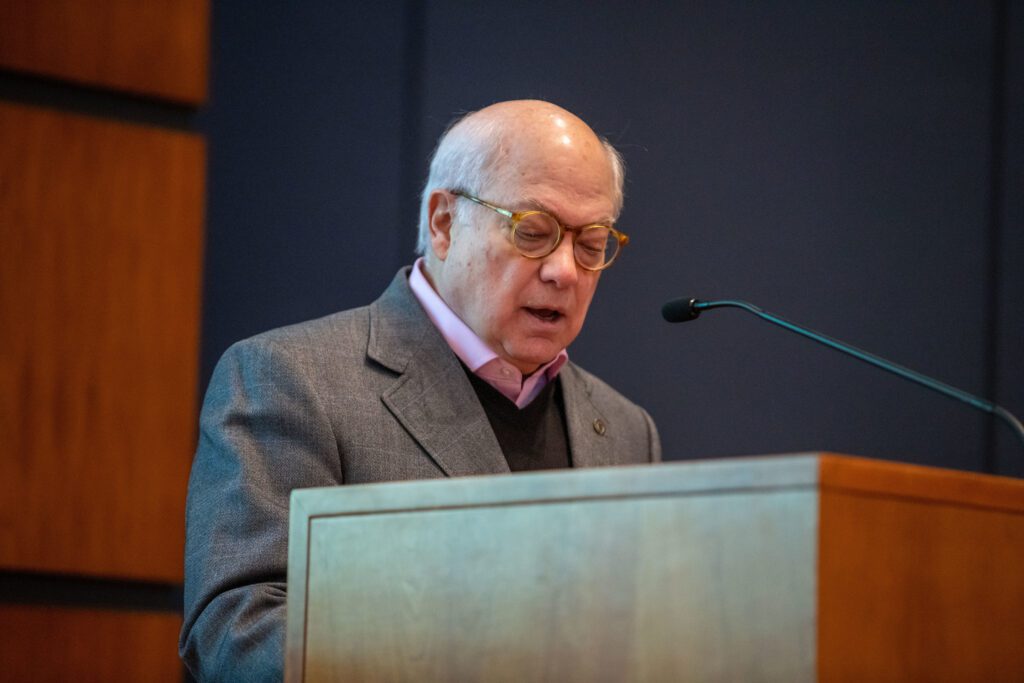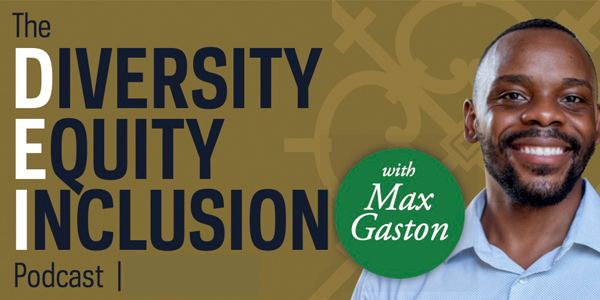The second event in the 2023 Ten Years Hence lecture series Is Globalism Dead on ThinkND featured Joseph P. Quinlan, a Senior Fellow at the Transatlantic Leadership Network and Senior Fellow in the Paul Nitze School of Advanced International Studies at Johns Hopkins University. In this talk, Quinlan discussed the war on globalization driven by politicians and academics pushing for policy. With decades of business practice and teaching under his belt, Quinlan vouched for globalization using data to drive his recommendations to fast-growing companies.
Quinlan came into the Wall Street scene as a professional when free market ideas driven by Margaret Thatcher and Ronald Reagan were on the rise. Now in the “fourth quarter” of his career, Quinlan sees free markets returning as the EU collapses and globalism grows from the United States to Asia. With low unemployment in the US today, Quinlan identifies globalization as the solution so that companies can share consumers, employees, and resources. Beyond manufacturing, which would have been the most valuable global resource at the start of the twenty-first century, sharing data and services is the most desired end to globalization.
“Deglobalization” would be the demise of the United States as an economic superpower because it restricts the natural progression of globalization. Quinlan argues that policymakers in Washington, D.C. too often consider low exports (10-12% of GDP) as a sign of poor global integration; however, the best metric to consider in this discussion is foreign affiliate sales, in which the United States excels. A deglobalized world limits consumers’ options due to the regulatory barriers and high costs associated with localized production. Alternatively, continuing to globalize and conducting intra-firm trade expands companies’ consumer bases and provides good jobs and wages to workers.
Globalization also helps narrow the per capita income gap between developed and developing countries—a step in the right direction for everyone. Through deglobalization, nations with fewer systems in place and without strong corporate structures will further struggle to strengthen their economies (particularly on a per-citizen basis). Quinlan’s proposed tri-polar world— North America, Europe, and Asia & the Pacific— is emerging as a guide to business executives considering international expansion. While the American executive administration is encouraging US-based companies to reshore their operations, those operations are already highly-concentrated in the US and companies would be better off diversifying their activities. Distributing resources and operations across the globe increases productivity, helping businesses to push back on easy-to-overcome obstacles to their success.
Moving on to a question and answer segment with the live audience, Quinlan responded to a question about increasing wages in China that some suspect would make Chinese labor less desirable to a company looking to boost profits; Quinlan argued that wages were increasing in response to the higher skill sets laborers were accruing through globalization education/knowledge and company-driven training programs. With more skilled workers at their disposal, still for a fairly affordable wage, Quinlin did not suspect corporations to pull labor operations out of Asia as a whole, but maybe shift to Vietnam or Bangladesh. Further, as workers’ wages rise, they have more disposable income to spend as consumers, which will continue to boost profits and GDP. Quinlan also discussed Japan’s workforce as a player in the effort to employ more women and bring their wages to parity. Following a question from O’Rourke about the future of political leadership, Quinlan spoke about increasing skill sets and honing skills to improve productivity, whether it is through a four-year college education or vocational training for essential middle-class jobs. Digital expansion will also drive globalization and have the same benefits to consumers and companies.
Visit the event page for more.

